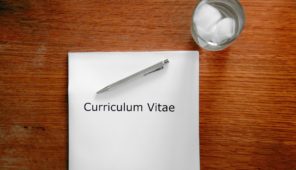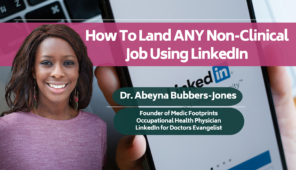#Projecthealthruraluganda – A unique opportunity for overseas doctors in Uganda
Meet Kenny and discover more about his background and the project - #projecthealthruraluganda. Could this be your calling?
Working overseas is a popular alternative career for many doctors.
For those of us who seek to do this, we look for experiences which either complement a fantastic work/life balance or exposes us to new challenges which helps develop our skills and expertise.
Uganda is the perfect ‘Off the beaten path’ opportunity for doctors and healthcare professionals looking to work overseas; particularly in rural areas where healthcare infrastructure and provision is relatively poor, and such expertise is desperately needed.
Medic Footprints are extremely proud to support an exciting new opportunity available to a range of healthcare professionals who are looking to contribute towards a life changing project for a community of over 20,000 people in rural Uganda – led by one young 27 year old local doctor who has chosen to dedicate his service to them, sacrificing any sort of renumeration.
Meet Kenny and discover more about his background and the project – #projecthealthruraluganda. If you are interested in learning more about the project and/or how you can help, please complete the form at the end of this article.

Who are you?
I am Dr. Kenneth Lule and I’m 27 years old. I’m married to Claire and we have a young son who’s name is David. I serve as a community doctor in Ndejje; a rural community in Uganda of about 20,000 people.
What was your medical training like in Uganda?
I graduated from medical school in December 2015.
In Uganda, it’s a full time course over 3 years; structured to having 45 hours of lectures a week for 8 months a year and 3 months of clinical work. The fourth year involves clinical work in the government hospital which would be like working as a resident or junior doctor.
It’s very hard for someone to go to medical school in this country since it’s very costly. The universities offer a few slots per year, which are usually taken by students whose parents are rich or have super qualified ( and super qualification is also dependent on which school you attended for high school, good schools are very expensive, can only be afforded by a few rich people).
That means that for me to go to medical school was a miracle. After the death of my parents I believed everything for me was over.
Whether I believed or not, I knew I was going to be like the other village boys, but it’s at this time that God brought some genuine friends in my life among which was this young American man who offered to pay for my tuition through out high school and eventually medical school.
Why did you choose to move back to your hometown after graduating, when most of your colleagues chose to stay in the city where renumeration is more lucrative?
I chose to move back to the rural community where I grew up from because I have always wanted to associate with people who are underserved.
At the age of 17 I witnessed the death of both of my parents from HIV/AIDS. They died within 1 month of each other.
This has always been the most traumatising time in my life and still is! I somehow still believe that if my parents had received better medication and counselling from a trained medical personnel, they would lived a little longer, for my younger brothers to enjoy their love at least for a few more years.
So, for that reason I was determined that I wanted to be a doctor and take care of people who are in poverty. God allowed me an opportunity and I went back to school and eventually medical school.
After I graduated I was offered by a number of opportunities which I almost accepted, however this was at the same time I went to visit some of my relatives in the community where I grew up. During that visit all the memories of the old came back; seeing the people I know, the people I love; dying from very simple diseases which can be treated if the intervention is made earlier.
Therefore, that’s why I was determined to come back and serve in this relatively small community.
It’s been a hard journey and still is, but I am happy I chose to do this. I could never have had a chance to be part of these people’s lives, I am always humbled!
What kind of medical pathology do you see in rural Uganda that you don’t otherwise see in the city?
From my observations, there is a common curve of medical pathology in Uganda, but the severity at which people suffer from diseases is what differs when it comes it rural and urban areas of the country.
Nevertheless, there are some diseases that still lead to loss of lives in rural areas, yet in urban areas have almost been eradicated for example; death from measles and malaria in under fives, miscarriages and death of pregnant mothers due to malaria and other pregnancy induced medical conditions.

This is due to lack of an active antenatal and maternity center in the community. So the pregnant mothers go to traditional birth attendants who don’t have any medical training. Moreso, there is a high rate of under nutrition among the children under fives, parents have food, but they just don’t know what to give to their children. For them quantity of food is the goal, not quality.
Among the elderly, hypertension, diabetes mellitus and related complications is the number one killer right now, and what’s sad is that most of the people think that these are spiritual related ailments (due to witchcraft). A number of them die from them and many seek for help when the disease is advanced and you can only do so much.
There is a high increase of HIV among the youth below the age of 25 years. Most them catch HIV simply because they have not been educated appropriately.
In one of the health education sessions I delivered concerning HIV, a young man honestly asked,
“After I use a condom, can I wash it and re- use it?”
Another one asked;
“If I slept with an HIV infected person once, can I still catch HIV?”
There is a lot of information gap amongst the youth and the community of rural citizens at large.
What are your main challenges as a doctor?
My challenges range from building trustworthy relationships with the locals and local council leaders. As well as managing to work as a doctor despite the paucity of resources available to me.
Some people in the community are traditional healers and for a long time they have been earning both money and respect from being the experts in knowing how to treat the diseases (of course they succeed in treating some, but due to their lack of medical training, makes them inadequate).
Therefore I have to work hard to convince these people especially on those days when we have health education. They usually come with an attitude of challenging you. Unlike in the beginning when I first started as a doctor in the community, the relationships are getting better, especially now after they know that I’m not a competitor in terms of getting money from community members.
I also struggle to ensure that my patients receive the medicine they need. Many are unable to afford it due to the level of poverty in the community, and others are too far away – this would require car hire on very bumpy roads which is otherwise quite costly & hard to go to see them.
Another challenge is the fact we have no inpatient facilities or antenatal and maternity services, despite these being desperately needed.
Due to lack of a working laboratory, most of my diagnoses are done through “a wise guess”. ( I know that sometimes this may be an unwise guess, and I may miss the diagnosis!)
Take us through a typical day?
Some days are better than others days! But a typical day starts in the morning at 8am when I meet the village health team members (these are non-trained medical volunteers) who go around the communities looking for the sick people.
We have about five zones and each zone has three volunteers. So at 9:00am after going through the files of the patients, we determine which patient to start with. Our choice of who to see first ranges from severity and urgency of the patient’s condition, to distance where the patient lives. On a typical day we see 5-6 patients, but on a longer day we can see 10 patients. This is determined by the factors I mentioned earlier (severity of disease and distance). We usually work from 0900-1700 hrs.
Tell us more about your plans for a new clinic and what kind of help / resources do you need?
Over the months I have worked here, I have seen a great need of Medicare in this community, more than I thought I knew in the beginning. Therefore my plan is to build a mini health center with an inpatient section. I have also seen a great need for antenatal and maternity services. Not forgetting the mini laboratory that can at least help in confirming some of the common diseases we have here in the community.
This however, will require me to buy a land about two acres to allow for future expansion as I dream to build a big and standard hospital in the future that can be to care of more than just this community.
There is a need to buy or receive donation (from another hospital) of hospital equipment that can help in proper and smooth running of the hospital. Since this is a starting medical centre, I will basically need everything from stethoscopes, thermometers to CBC machines, microscopes, hospital beds and mattresses, hospital vehicle, solar system since electricity is always on and off here. I have written out a list and budget that I can avail for reference.
I will need to substantially fundraise from philanthropic sources in order to succeed in this project, hence why I’m calling out for help from generous people who see a ray of light in this kind work that I do.
Please join me – God is using me to save some lives!
What kind of people can help you with #projecthealthruraluganda ?
I wish to connect with all sorts of people: volunteers, all types of medical workers, hospitals and other organizations, individuals just interested in knowing what I do, business people who are interested in supporting or knowing my work.
To be precise if it’s about this work, all are welcome!
My earnest prayer is that some of you will get a chance of coming here to volunteer. I have work for everyone :).
One thing I promise you, you won’t go back the same, because this community, is a life changing community.
Most of my patients think that I’m a hero because I left my job to come and serve them here, but as I always say, they have taught me about life than I could ever learn from anywhere!
One lesson I have learnt and I continue to learn, true joy isn’t found in the abundance of possessions, we could all be happy; if we chose to accept who we are!

If you feel that you could provide some help to Kenny in this exciting #projecthealthruraluganda, which will certainly be a challenge for any healthcare professional or volunteer, or simply have an enquiry – please get in touch.
For more on working overseas, check out our overseas section.
Charlotte Leigh
Latest posts by Charlotte Leigh (see all)
- Public Health Training: The Real Deal - 23rd November 2016
- #Projecthealthruraluganda – A unique opportunity for overseas doctors in Uganda - 20th November 2016
- Be inspired with creative lifestyle guru & GP – Emaese Jegede - 9th November 2016


